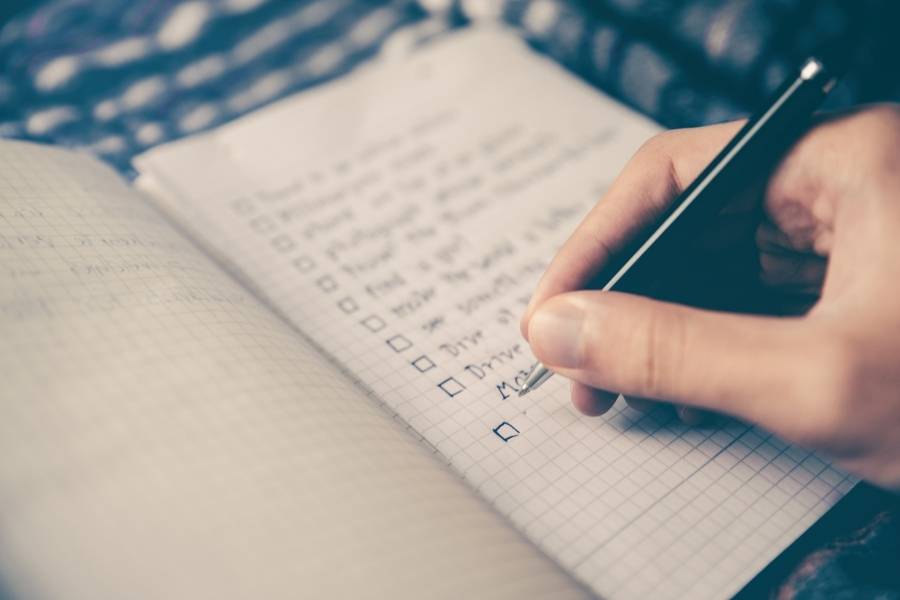Students are required to memorise a lot of material for university courses. It might be challenging to memorise the curriculum for one lesson. However, when you have numerous subjects, it can be much more stressful. It's common for learners to believe that their memorisation skills are weak. However, memorisation is not limited to a few people gifted with the necessary abilities. We can all improve our memory through practice.
When exam day arrives, many students question themselves on whether you are remembering what you study. Strengthening your memorisation abilities is quite simple, no matter if you are trying to learn a foreign language, prepare for a test, or just keep your mind active. It only requires experimenting with novel memorising strategies. Below are the top five techniques to improve your memory for exams or tests.

1. Take Handwritten Notes, Don't Type Them
Place your laptop in a drawer and start writing your notes. Handwritten notes are easier to remember than typed ones. It is preferred to jot down your concepts for a few reasons when you are memorising them. Your brain uses more energy and works harder to produce each letter when you write by hand.
According to studies, typing on a laptop makes it easier for people to copy lectures word for word. On the other hand, taking handwritten notes enables students to rephrase the concepts in their own language which promotes increased engaged learning.

2. Test Your Knowledge After Memorising A Specific Topic
Test yourself, after studying the course material. This self-assessment approach is one of the most effective study methods for helping you quickly recall words, topics, and concepts. It entails asking yourself questions after reading about a specific subject to see whether the information you consumed actually sank in or just came flying off your tongue. This technique is also known as retrieval practice.
3. Memory Enhancing Lifestyle Changes
Your brain health matters the most for memorisation. You can generally improve your memorisation by doing the following three things, which will reveal the secret science behind remembering what you study.
Have A Power Nap After A Learning Session
After you've taken a learning session, have some rest or take a quick nap. People who sleep for eight hours after learning something are more likely to recall the lesson than those who don't sleep. There are so many Benefits of Sleep for Students, and sleep prevents our brains from memory loss and improves memory retrieval. As a result, this supports the argument that studying late at night is not the best idea.

Choose Different and Peaceful Locations To Study
Various environmental signals might serve as triggers for your memory. Consider changing to a different location to help the concepts stick in your memory if you're having difficulties recalling the stuff you're studying.

Getting Healthier Meals Will Help You Memorize Faster
Numerous studies have shown that eating foods such as the Mediterranean diet, which is high in fruit, vegetables, seafood, and nuts, can significantly improve your memory and slow the aging process. Contrarily, red meat and butter are high in saturated and trans fats, which may interfere with memory. Thus, eating healthy does not only improve your diet but also helps in sharpening your brain and avoiding memory loss. You can even try the Top Brain Foods for Exam Season to help your brain's metabolism.
4. Make Use of Acronyms and Mnemonic
Make patterns and phrases out of the course material that you need to memorize. Information can be remembered more easily if the initial letter of each item is connected to a word, term, or rhyme. These techniques are particularly helpful for remembering lists and sequential information.

5. Make Clever Connections Between Images and Words
Making interesting associations between words and visuals can make it simpler to remember stuff. Images are processed by the human brain more quickly than any other learning criterion. Our brain processes words faster when they are represented in visuals. According to studies, people always remember and can recall approximately 80% of the information conveyed by visuals. It is one of the most successful study methods for remembering what you study.
Final Thoughts
Just keep in mind that you should combine these memorisation strategies with other effective study approaches like time management and subject planning. As a result, you will have a more comprehensive knowledge of the topic rather than simply memorising it.
Did you find this helpful? Why not try 10 Ways to Stop Procrastinating This Exam Season




